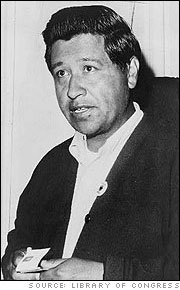In 1962, he left the CSO to organize wine grape pickers in California and formed the National Farm Workers Association. Using strikes, fasts, picketing, and marches, he was able to obtain contracts from a number of major growers. In 1966 his organization merged with the Agricultural Workers Organizing Committee of the AFL-CIO to form the United Farm Workers Organizing Committee of the AFL-CIO. Chavez also launched (1968) a boycott against the table grape growers, mobilizing consumer support throughout the United States. In 1972 the United Farm Workers (UFW), with Chavez as president, became a member union of the AFL-CIO. Chavez expanded its efforts to include all California vegetable pickers and launched a lettuce boycott, as well as extending his organizational efforts to Florida citrus workers. His successes in California were sharply diminished, however, as the result of a jurisdictional dispute with the International Brotherhood of Teamsters over the organization of field workers. In 1973 the Teamsters cut heavily into UFW membership by signing contracts with former UFW grape growers, but Chavez renewed the grape workers’ strike. In 1977, the two unions signed a pact defining the types of workers each could organize. Membership in the UFW later fell, in part due to disputes between Chavez and his followers, some of whom accused him of nepotism. See J. E. Levy, Cesar Chavez: Autobiography of La Causa (1975); R. Franchere, Cesar Chavez (1988). The Columbia Electronic Encyclopedia, 6th ed. Copyright © 2005, Columbia University Press. All rights reserved.
More about Cesar Chavez
